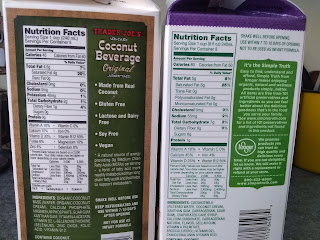As I continue my search for anti-inflammatory food choices, I found an interesting article that backs up my personal experience in the difficulty in pinpointing an inflammatory food culprit, "the role of
dietary modifications in Rheumatoid Arthritis is not well understood". Also, there has been no study that links high oxalate consumption to Rheumatoid Arthritis but there is mention of it possibly
being an irritant to RA. Calcium supplements bind with oxalates to remove them from your body (everyone naturally has some level of oxalate in their body). But there is risk involved if regularly consuming calcium; Taking calcium supplements without consuming a meal can raise the risk of urine calcium excretion and stone formation! Have you noticed doctors have stopped recommending calcium supplements (remember when that was highly recommended along with Vitamin D)? Now they just recommend taking Vitamin D. I only take calcium if I am having an obvious oxalate problem with a food I just consumed (
read about my prior oxalate troubles).
I was experimenting with taking 1000 mg of Vitamin D a day because I read that it might help ease RA symptoms (I have never been low in the vitamin). My hair started falling out and a friend told me that was a symptom of a vitamin D overload! Once I stopped, magically my hair stopped falling out. My point is that you can not take everything you read as face value! Any sort of diet change that worsens symptoms is not a good thing. Listen to your body, it really is in control.
 |
| Still off coffee but I did have 1/4 of a cup Sunday, no reaction. |
I have learned from my continued research that variety is key. If you eat one food daily, it potentially "could" result as an overload your body in some manner. As previously discussed in my blog, I'll either avoid the super high oxalates or portion control them down to a wisp every now and then. A gluten free diet has been touted as anti-inflammatory. Brown Rice flour and Barley flour are on the super high list for oxalates and often found in gluten free products. If you are sensitive to oxalates, they might be gluten free ingredients to avoid as a test to see if causing inflammation.
Dairy will help neutralize oxalate so it's better to mix the super high oxalate cocoa powder with dairy milk when you're making that hot chocolate as cocoa and carob are high in oxalate. Soy and rice flours are super high in oxalate. Wheat flour is not too far behind so a piece of chocolate cake is much worse than a slice of pie for example.
 |
| Grandmother's Pie, yes I will eat a sliver. |
Basically any sort of concentration of foods is going to push the oxalate level higher as the natural state of the food is compressed. Some foods are listed as high in oxalate but you would have to consume an abnormal quantity in order for it to be that high. The reverse can also be true, some foods are listed as low but a normal serving would be much higher than the chart lists, pushing up the oxalate level. A tsp of cinnamon is an overload but a sprinkle is fine. Beets, raspberries and many nuts are listed as high oxalate but a sprinkle is ok. Potatoes are on the super high list but if you eat a red potato without the peel, it reduces it. Hummus is low but only 1 tblsp is listed, if you ate an entire container, the level would be much higher. The highest oxalate food I found listed was wheat berries. Cornmeal, Bran flakes, Shredded Wheat, French Fries, Soy beans, Miso, and Yams round out the super high list. The worst offenders, if one were to sit down and eat what would be called a "normal" serving should be avoided all together: Spinach (cooked or raw), Rhubarb, Buckwheat Groats, Rice Bran, Almonds, and Miso Soup. A Great site:
For a full explanation.
 |
| I'm a big label reader, coconut milk brands are not alike! |
My study of oxalates really have taken some time to digest. There is no scientific study to prove that reducing your oxalate intake will heal your RA but it's certainly something that is not beneficial to your body if you overdo it. I believe it's worth removing the worse offenders to decrease the potential inflammation. Luckily I like most foods so alternatives are not a problem. I'm still off coffee but the good news is it's low in oxalate. I have been using soy creamer which is on the high oxalate list but you would have to drink a cup to get it to the high level, a tablespoon is probably not an irritant due to the low quantity. Something to think about is that almonds, cashews, and soy are high oxalate so artificial milks that concentrate them in quantity would be even higher if you consumed a decent serving. Coconut is on the low oxalate list so hopefully coconut milk is not high (no confirmation on this but it is concentrated so low volume in anything concentrated is the rule.
Next I'll be looking at the Acid Alkaline Diet for any clues as to inflammatory foods that might be aggravating my RA. In the meantime, I'm keeping a daily food log and am trying to eat less chocolate, gluten and sugar. Life is too short to not enjoy a sinful food every now and then, just going to keep it a small portion!
~ Rebecca





No comments:
Post a Comment